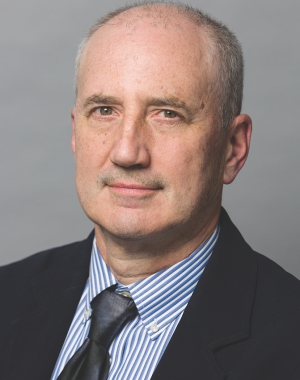Cancers caused by human papillomavirus (HPV) infection are the third most common cancers in women. In fact, practically all cervical cancers are caused by HPV infection.
HPV infection is the most common sexually transmitted infection. Many people with HPV infection don’t know they have it, because this infection often has no symptoms, but they can still transmit it through sexual contact. HPV infections are common in men and in women.
The good news is that all these infections can be prevented through vaccination. The not-so-good news is that many people still don’t get the HPV vaccine.
According to the Centers for Disease Control and Prevention, HPV infections account for more than 35,900 cancers each year in the United States, including cervical cancer in women and penile cancer in men, as well as anal cancer and head and neck cancer in men and women.
The HPV vaccine can prevent the common HPV strains that cause cancer and is now recommended for all boys and girls in the United States. Adults up to age 45 years can also receive the HPV vaccine.

HPV-Related Cancers
At the 2021 Annual Meeting of the National Comprehensive Cancer Network, several cancer experts discussed the common cancers that are caused by HPV infection.
“HPV causes essentially 100% of cervical cancers, most anal cancers, about half of cancers of the vagina/vulva and penis, as well as a proportion of cancers in the mouth and throat, predominantly in the oropharynx,” said Edward L. Trimble, MD, MPH, Senior Advisor for HPV and Global Cervical Cancer Research and Control at the National Cancer Institute.
Anal Cancer Survivor: Lillian R. Kreppel
“HPV is so common, that nearly all sexually active men and women get the virus at some point in their lives,” said Lillian R. Kreppel, Executive Director and Co-Founder of the HPV Alliance and a cancer survivor. “Most people have no idea they have the virus. Most women don’t realize that it affects more than just the cervix. It causes 6 cancers,” she added.
Most often, our immune system clears the virus from our body on its own, but sometimes it does not, which is when it can cause cancer, Ms. Kreppel said.

Ms. Kreppel learned that she had the HPV infection after she had a Pap smear test. In 2017, she had symptoms that she thought were related to a hemorrhoid she had that did not resolve with creams.
Her visit to a physician did not lead to any medical diagnosis, so she made an appointment with a second physician. This second doctor did a Pap smear, which led to a diagnosis of HPV infection, which then led to a diagnosis of anal cancer.
At age 52, she received the HPV vaccine, to protect against other HPV strains. She also co-founded the HPV Alliance in 2019, with the goal of using her personal experience to help other people and increase awareness to this common infection and its prevention.
HPV Infection & Cancer
Some people have persistent HPV infection, and therefore they have a persistent risk for cancer. Cancers associated with the HPV infection are unique. Although HPV-associated cancers are stigmatized by many people, they usually are not associated with any harmful or risky behaviors.
HPV infection is not caused by unsafe sex or promiscuity. The HPV infection is transmitted by regular sexual behavior, so anyone engaging in sex is still at risk. And this is not related to any one gender. It’s not just women who can be infected with HPV. Furthermore, barrier contraceptives, such as condoms, don’t offer sufficient protection from transmitting HPV infection.
Although practically all cervical cancers are caused by HPV infection, men are infected by HPV as much as women, and they can have cancer in the genitals, anus, and throat, just as women can.
There are 200 strains of HPV infection. Low-risk subtypes mostly cause no cancer, but they can cause warts on or around the genitals, anus, mouth, or throat. The high-risk HPV subtypes, such as subtypes 16 and 18, can cause cancer.
HPV can cause anal, cervical, oropharyngeal (or throat), vaginal/vulvar, and penile cancers. In males, HPV causes 81% of oropharyngeal cancers compared with 14% in females.
HPV is responsible for 12% to 18% of anal cancers in men and women, 3.5% of vaginal cancers, 16.2% of vulvar cancers, about 94% of cervical cancers, and 6.8% of penile cancers.
HPV Vaccination Is Cancer Prevention

Of the 35,900 cases of HPV-associated cancers diagnosed in the United States each year, “70% to 90% are preventable, if only patients could get an HPV vaccine,” said Shivan J. Mehta, MD, MBA, from the Abramson Cancer Center at the University of Pennsylvania in Philadelphia. “Despite the vaccine being covered by insurance for over a decade, only about 50% of eligible patients in this country are actually [vaccinated],” Dr. Mehta added.
Not enough attention is being paid to prevention and early detection of HPV, Ms. Kreppel suggested. HPV vaccination is cancer prevention, she said.
Of the nearly 36,000 cases of cancer caused by HPV in men and women annually, “HPV vaccination can prevent more than 32,000 of these cancers from ever developing, by preventing the infection that causes those cancers,” Ms. Kreppel said.
HPV encompasses a family of more than 120 papillomaviruses that can infect the skin or mucous membranes. HPV subtypes 6 and 11 are responsible for genital warts, and HPV subtypes 16 and 18 are the strains causing most cancers.
Three HPV vaccines have been approved by the FDA. Gardasil protects against HPV subtypes 6, 11, 16, and 18. Gardasil 9 offers protection against those same subtypes in addition to HPV subtypes 31, 33, 45, 52, and 58. Cervarix protects against HPV 16 and 18 and its adjuvant provides overall protection against additional subtypes.
The vaccines are more than 90% effective at preventing HPV infection, and their ability to reduce the rate of persistent infection is 100%, according to Dr. Trimble.
An HPV vaccine is given in 2 to 3 doses over 6 months, ideally at an early age before people become sexually active. In the United States, HPV vaccination is recommended for all girls and boys around age 11 or 12.
The Centers for Disease Control and Prevention has recently recommended a catch-up vaccine until age 26 for women and men who did not receive the vaccine at age 11 or 12. And the FDA has expanded the use of Gardasil 9 for women and men between ages 27 and 45.
Treatment for HPV infection exists, but the treatment is not easy. Furthermore, because many people don’t know they have the infection when they have no symptoms, they can pass it to their sexual partner. Therefore, instead of focusing on treatment, we should focus on prevention.
“It is time to go from better treatment to preventing cancer from happening in the first place,” Ms. Kreppel suggested.
HPV Screening
Even with the vaccine, screening for HPV is still important, to diagnose an infection before it causes cancer.
For women, screening consists of a Pap smear (or test), in which cells are collected from the cervix to check for abnormalities or the presence of cancer. An HPV test can be performed using the same sample from the Pap test or by collecting a second sample from the cervical canal.
Ask Questions
For Ms. Kreppel, there were many lessons learned from her experience.
“Don’t be afraid to ask doctors questions. You have to advocate for yourself. I knew something was wrong the first time I went to the doctor, and I didn’t take ‘no’ for an answer, and I moved on to another doctor who found the cancer,” she said.
Learn all you can from credible sources, and don’t wait if something appears wrong, get the answer you need.
Key Points
- Practically all cervical cancers are caused by HPV infection
- HPV infection is the most common sexually transmitted infection in men and in women
- Many people with HPV don’t know they have it, because HPV often has no symptoms
- The HPV vaccine is more than 90% effective at preventing HPV infection
- In the United States, HPV vaccination is recommended for all girls and boys around age 11 or 12
- The majority (70%-90%) of all cancers caused by HPV infection can be prevented by getting the HPV vaccine
Patient Resources
American Cancer Society
www.cancer.org/cancer/penile-cancer/about/key-statistics.html
HPV Alliance
https://hpvalliance.org
National Cancer Institute
www.cancer.gov/about-cancer/causes-prevention/risk/infectious-agents/hpv-and-cancer#cause-symptoms















